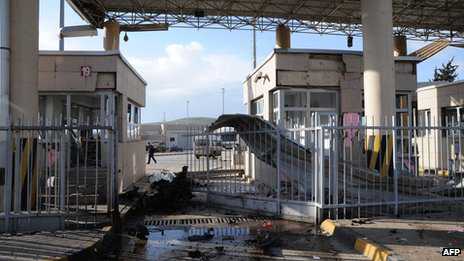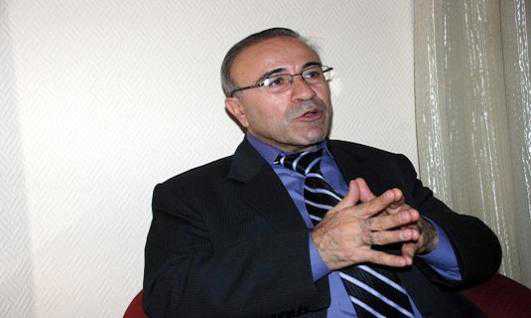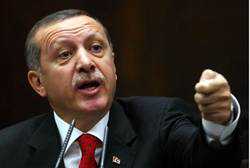
The blast happened near the Cilvegozu border post, one of the main crossing points for Syrian refugees into Turkey
A minibus exploded on the Syria-Turkey border, killing at least 10 Syrians and three Turkish nationals, Turkish officials have said.
It is not yet known what caused the blast, which wounded dozens more.
Meanwhile, rebels have reportedly seized control of Syria’s largest hydro-electric dam, in what would be a strategic loss to the government.
Activists and opposition groups said fighters were guarding the dam’s entrances and exits in Raqa province.
Reports said the dam on the Euphrates River in the country’s north was still operational.
Syrian President Bashar al-Assad reiterated on Monday that he would not step down, “no matter how pressures are building up”, state-run Sana news agency reports.
“Syria will remain the beating heart of the Arab world and will not give up its principles despite the intensifying pressure and diversifying plots not only targeting Syria, but all Arabs,” he is quoted as saying by Sana.
Scene of clashes
Monday’s explosion happened in the area of the Cilvegozu customs post on the Turkish side of the border, in the southern province of Hatay.
It is one of the main crossing points for Syrian refugees into Turkey.
The Syrian-registered minibus blew up only metres away from the Turkish border gate, where scores of civilians and humanitarian workers were congregated, Turkish deputy prime minister Bulent Arinc said.
“It was a powerful explosion. But whether this was a vehicle laden with explosives or another type of explosion, I think, at the latest, will become clear tomorrow,” he said.
“All possibilities are on the table, including political motives.”
Turkey’s interior, justice and customs ministers were due to fly to the area to be briefed on the incident.
The crossing, which lies opposite the Syrian border post of Bab al-Hawa, has been the scene of clashes in recent months. Rebels fighting to overthrow Syrian President Bashar al-Assad captured Bab al-Hawa in July.
The latest incident comes after continued violence across the country left some 77 people dead on Sunday, AFP news agency quoted opposition activists as saying.
The Local Coordination Committees said clashes had broken out in the al-Afif neighbourhood of Damascus, near the the presidential complex.
Information from inside Syria is almost impossible to verify because of the heavy restrictions placed on international journalists there.
The fighting in Syria has killed at least 60,000 people, the UN says.
Dam ‘taken’
The Syrian Observatory for Human Rights, a UK-based activists group, said Islamist fighters now controlled the Tabqa dam. The facility provides much of the electricity to the city of Aleppo.
Rebels launched an offensive in Aleppo in July, but since then the city has been divided between fighters and government forces, with neither side apparently able to push the other out.
“The rebels took control of the dam, which is still in operation. They are guarding both entrances but have forbidden the fighters from staying inside for fear the regime will bomb it,” SOHR director Rami Abdel Rahman told AFP.
The SOHR said Islamist fighters also took over three districts in the neighbouring town of Tabqa, where employees of the dam and their families live.
The SOHR is one of the most prominent organisations documenting and reporting incidents and casualties in the Syrian conflict. The group says its reports are impartial, though its information cannot be independently verified.
Moaz al-Khatib (file photo) Moaz al-Khatib’s offer of talks was criticised within his own movement
‘A Syrian opposition leader meanwhile has criticised the government for not taking up his offer of peace talks.
Moaz al-Khatib, of the Syrian National Coalition, said the regime’s response sent a “very negative” message to the world.
In a statement on his Facebook page, Mr Khatib said the government had “lost a chance to engage in a dialogue” to end the two-year conflict.
Last month, Mr Khatib said the Syrian National Coalition – an alliance of opposition groups – would meet Syrian officials, so long as Syria freed 160,000 political prisoners.
His overture, which has the backing of the US, was criticised by many of his coalition colleagues, who reject discussions while President Assad and his inner circle remain in power.
On Friday, Syrian Information Minister Omran al-Zohbi said the government was prepared to hold talks with the opposition without preconditions.
“We are serious about the question of dialogue,” Mr Zohbi said on state television. [But] When you speak of dialogue, it means dialogue without conditions, which excludes no-one.”
via BBC News – Syria crisis: ‘Powerful’ minibus explosion kills 13.
 Informed sources had it that Yusuf Afash, brother to Ahmad Afash, FSA leader has lost along with his terrorist group members in their way back from Turkey in Qatma border village.
Informed sources had it that Yusuf Afash, brother to Ahmad Afash, FSA leader has lost along with his terrorist group members in their way back from Turkey in Qatma border village.



